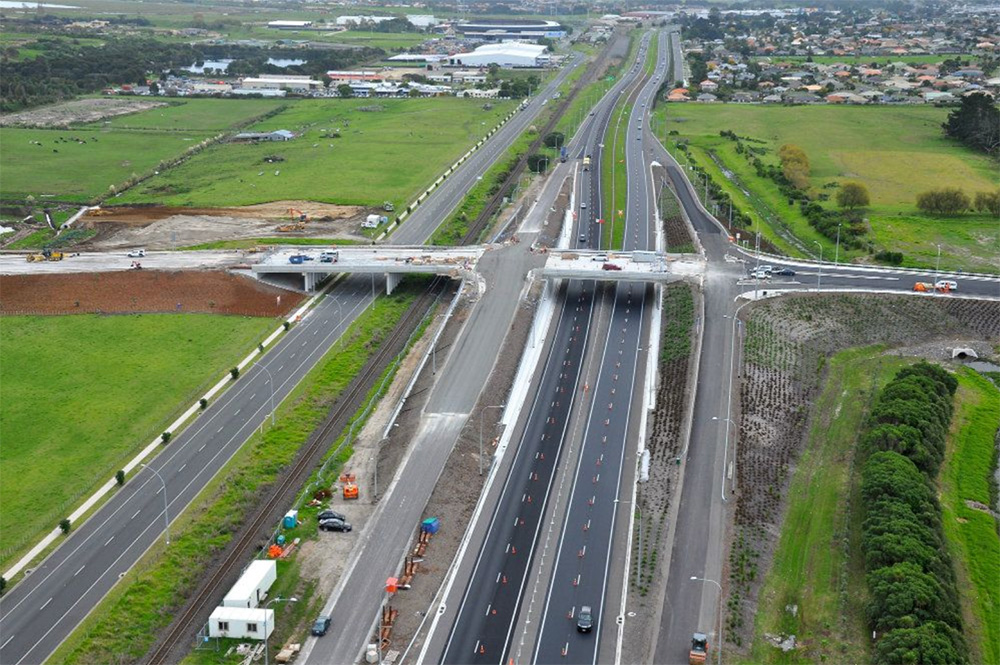It’s no secret that New Zealand has a shortage of and demand for engineers. From an industry perspective, the need for engineering services far exceeds the rate at which we can train and develop engineers locally. As such, for a long time now, as a country, we’ve sought to attract skilled engineers with transferable skills from abroad.
Overview of sectors with strong demand for engineers
It’s a busy time to be in the engineering profession in New Zealand. In particular, these sectors have a strong forward pipeline of projects and demand for staff.
Land Development – within both residential and commercial projects. These are either redevelopment (brownfield projects) or developing new services/assets from undeveloped land (greenfield).
Transportation – looking towards a low emissions future. There is high demand for the redevelopment of inner city roads and transport routes. This will give people more sustainable transport options, including public transportation and dedicated safe walking or cycleways. There is also strong demand within the Roads and Highways sector for the development of safer, multi-lane expressways.
Coastal – with a focus on mitigating threats to properties and infrastructure assets from rising sea levels. Also a focus on the design of major infrastructure assets to future-proof a growing population and economy.
Environmental – as Kaitiaki (or protectors of our land and resources), significant importance is placed on protecting our environment and natural resources. Consideration and care in designing engineering solutions to protect against the environmental impact play into all project types. There is a focus on air, water, and land pollution control methods.
Water – major reform is on the horizon within our three waters sector (read more on this here).
As a result, there is substantial demand for engineers with skills in the design of water infrastructure assets. Assets include; large water & wastewater treatment facilities, bulk water storage and dams, water pipelines (new & existing). It also includes large and small sewers, stormwater, and supply assets with a focus on reticulation. Read more about the 5 types of engineering opportunities in New Zealand.
Companies generally seek
Intermediate Civil or Geotechnical engineers with a minimum of:
- Bachelors of Engineering or Masters of Engineer (Washington Accord preferred)
- 5 years of recent design experience across a broad range of engineering projects
- Strong knowledge of core engineering principles, including the ability to perform calculations and problem solve.
- Project Management experience where you were the lead on projects
- Experience dealing with clients
- Ability to deliver well written reports
- Efficient in the use of Civil 3D or 12D
Core general civil engineering skills would include design of services for drinking water/wastewater/stormwater, pavement design, bulk earthworks design. Core geotechnical skills would include the design of retaining walls, foundations, basements etc.
A snapshot of core demand for engineers across New Zealand
Auckland – strong level of demand in all areas. Driven by major project campaigns.
Hamilton / Waikato – land development and transportation.
Tauranga / Bay of Plenty – coastal, environmental, transportation and land development.
Wellington – coastal, transportation, water, and land development.
Christchurch – land development, water, and transportation.
Regional NZ – coastal, environmental, transportation and land development.
- Demand is driven by areas of population growth to smaller centres like Hamilton, Tauranga, New Plymouth, Napier, Nelson, and Queenstown.
How to increase your chances of securing an engineering job in New Zealand
As a first step, If you’re thinking of a move to NZ, you can read more here on how to prepare.
Generally, the need for employers to look internationally is driven by the need to secure experienced, capable engineers with a short ramp up time to be mostly self sufficient. So companies are looking for people they believe will adapt quickly, with evidence of:
- Similar experience to the role their hiring, including working for a company in the same sector and in a highly transferable role.
- Skills on your CV that meet their requirements (outlined above)
- Examples of projects that show evidence of the skills you have used and how transferable those skills are.
- Strong ability to be tested on engineering knowledge, skills and principles at interview.
If you are interested in a move to New Zealand and have relevant recent experience in the above sectors, we welcome you to get in touch with our Design and Build team.
We have also released our annual Design & Build salary guide, which you can download a copy of here.

